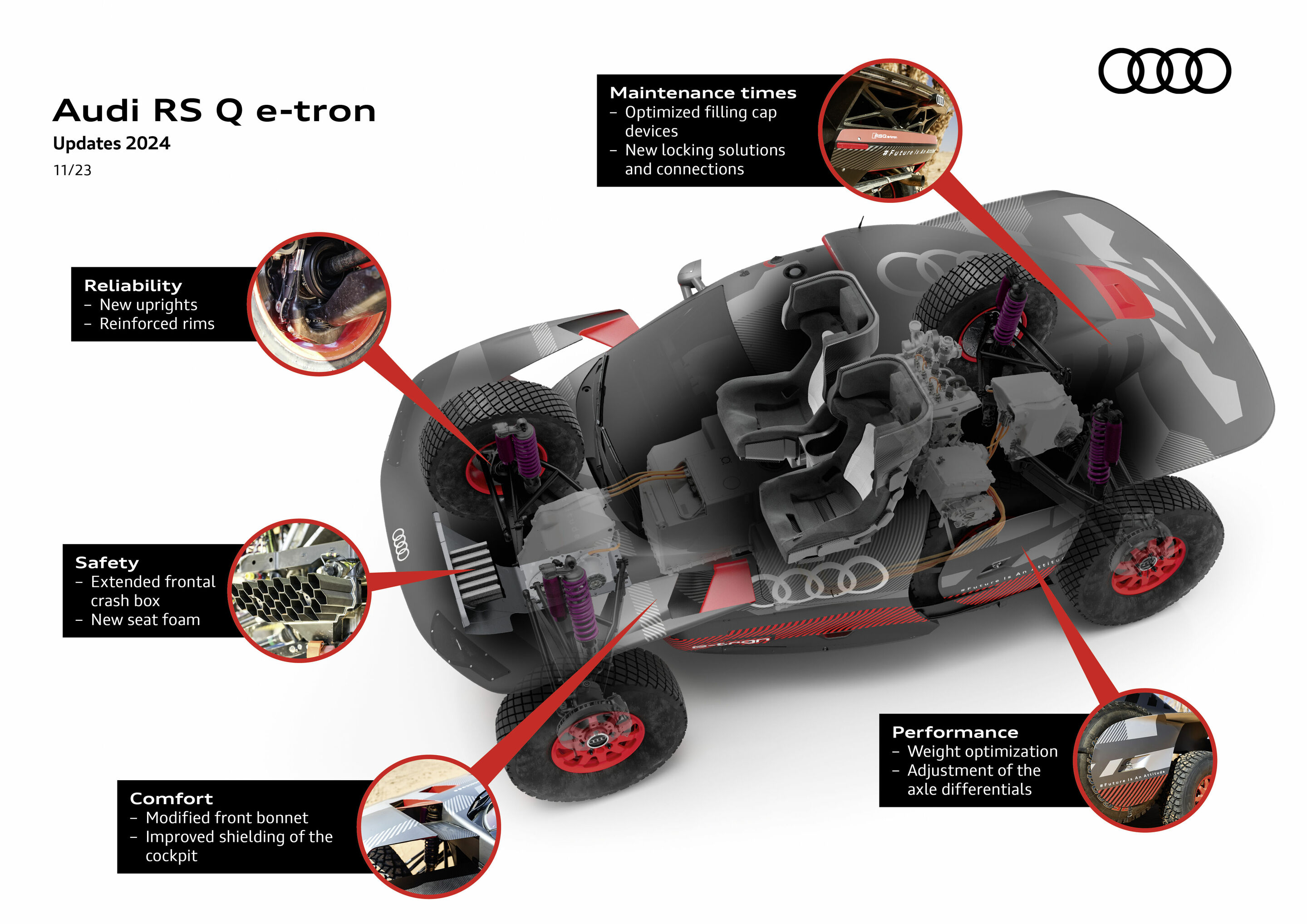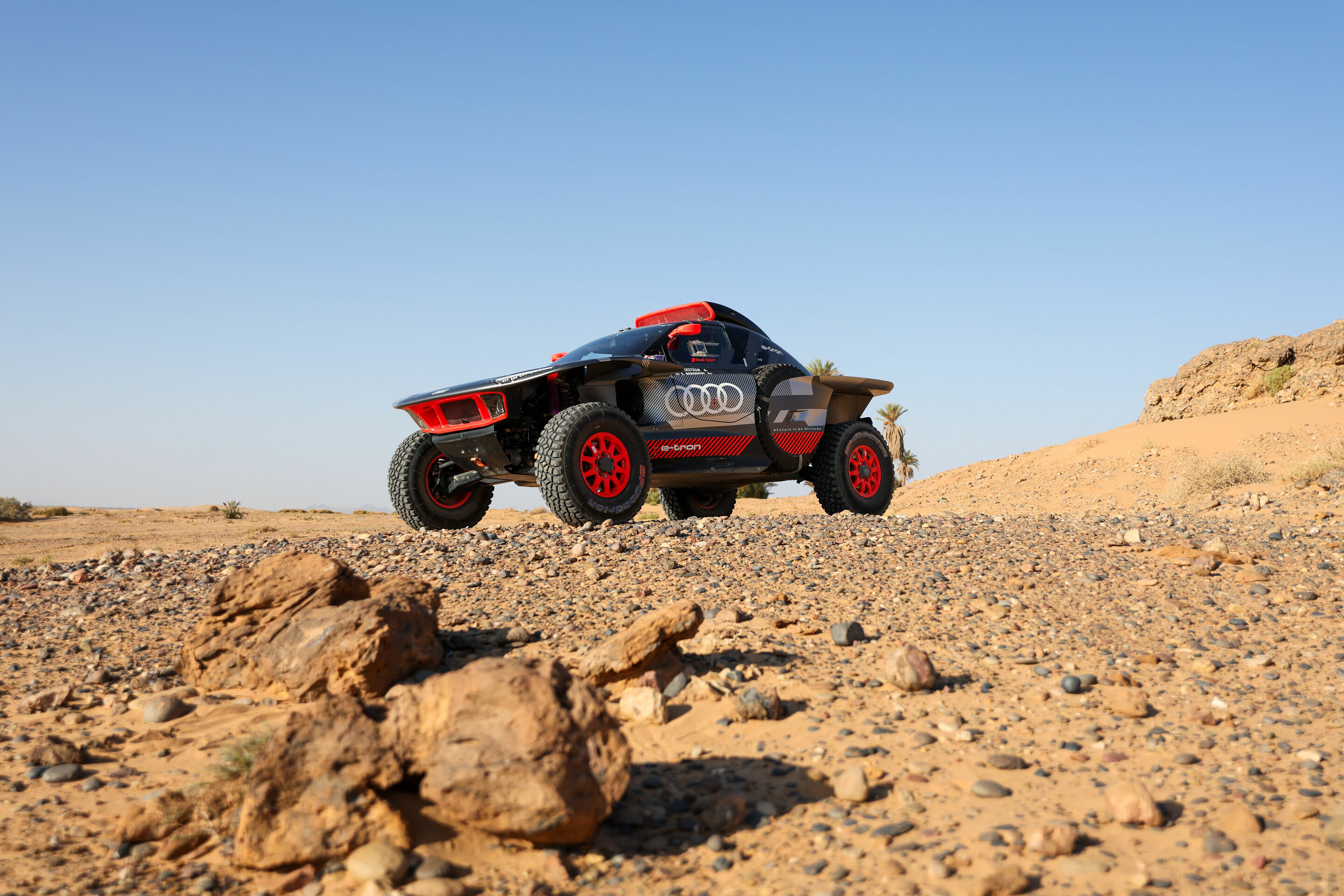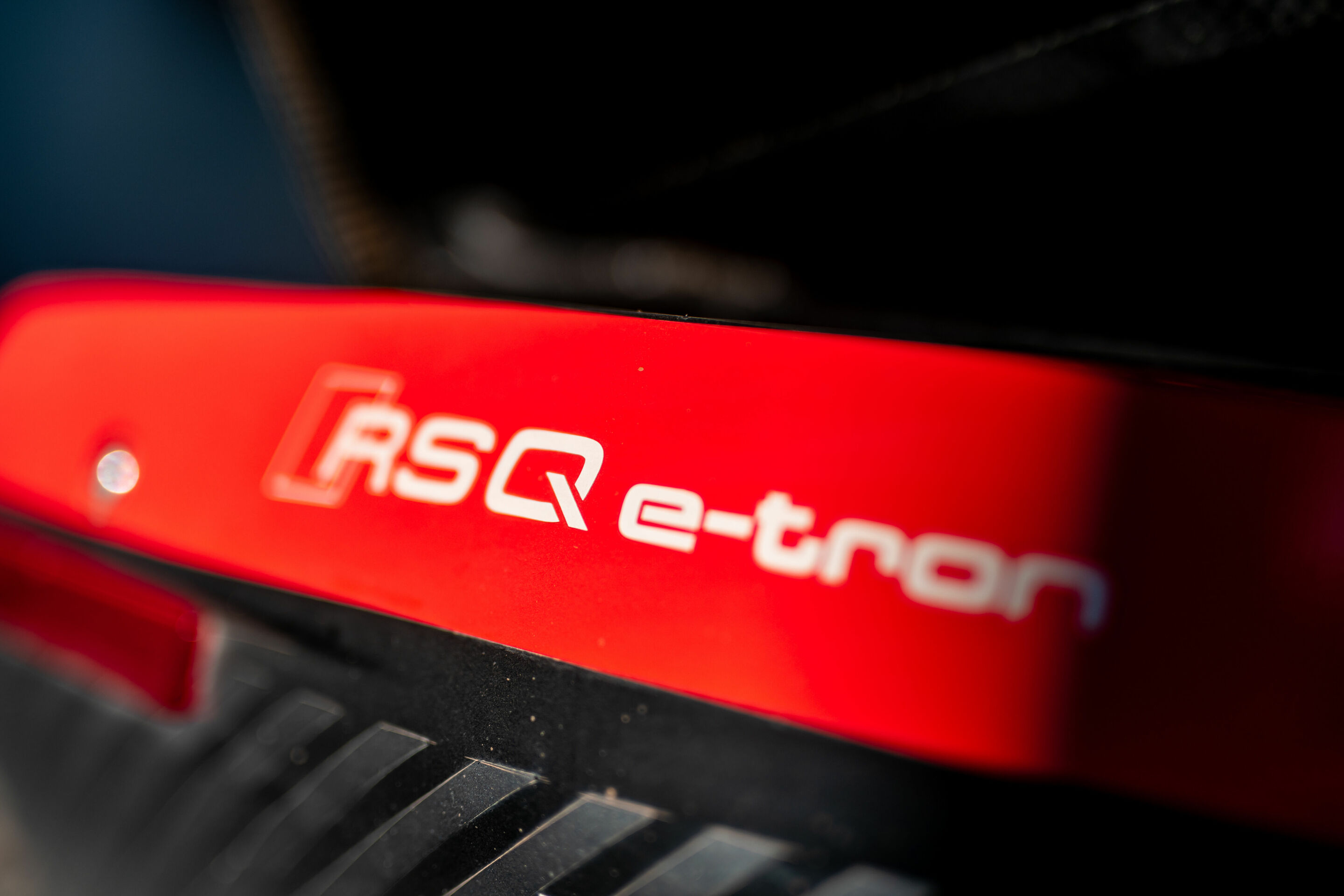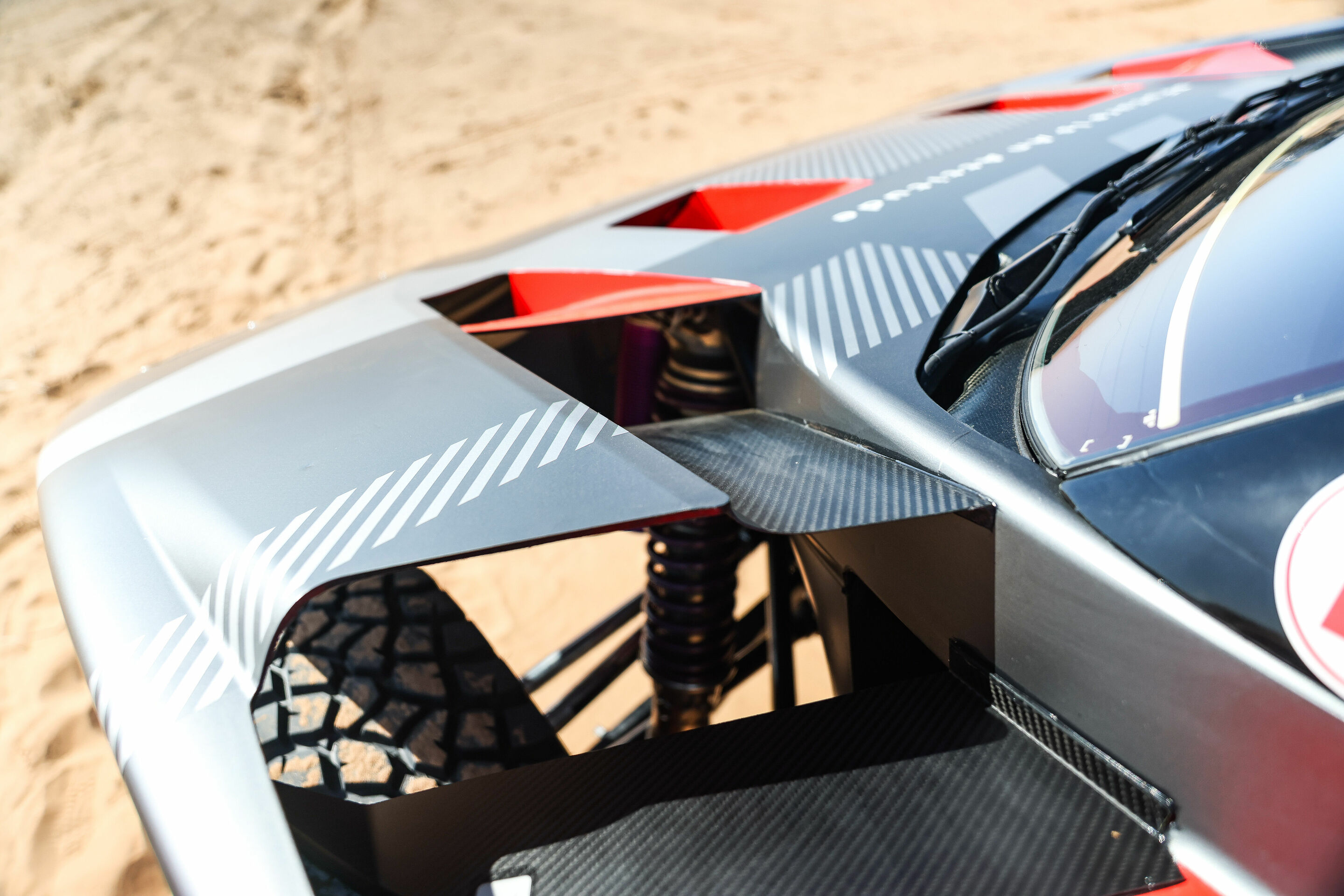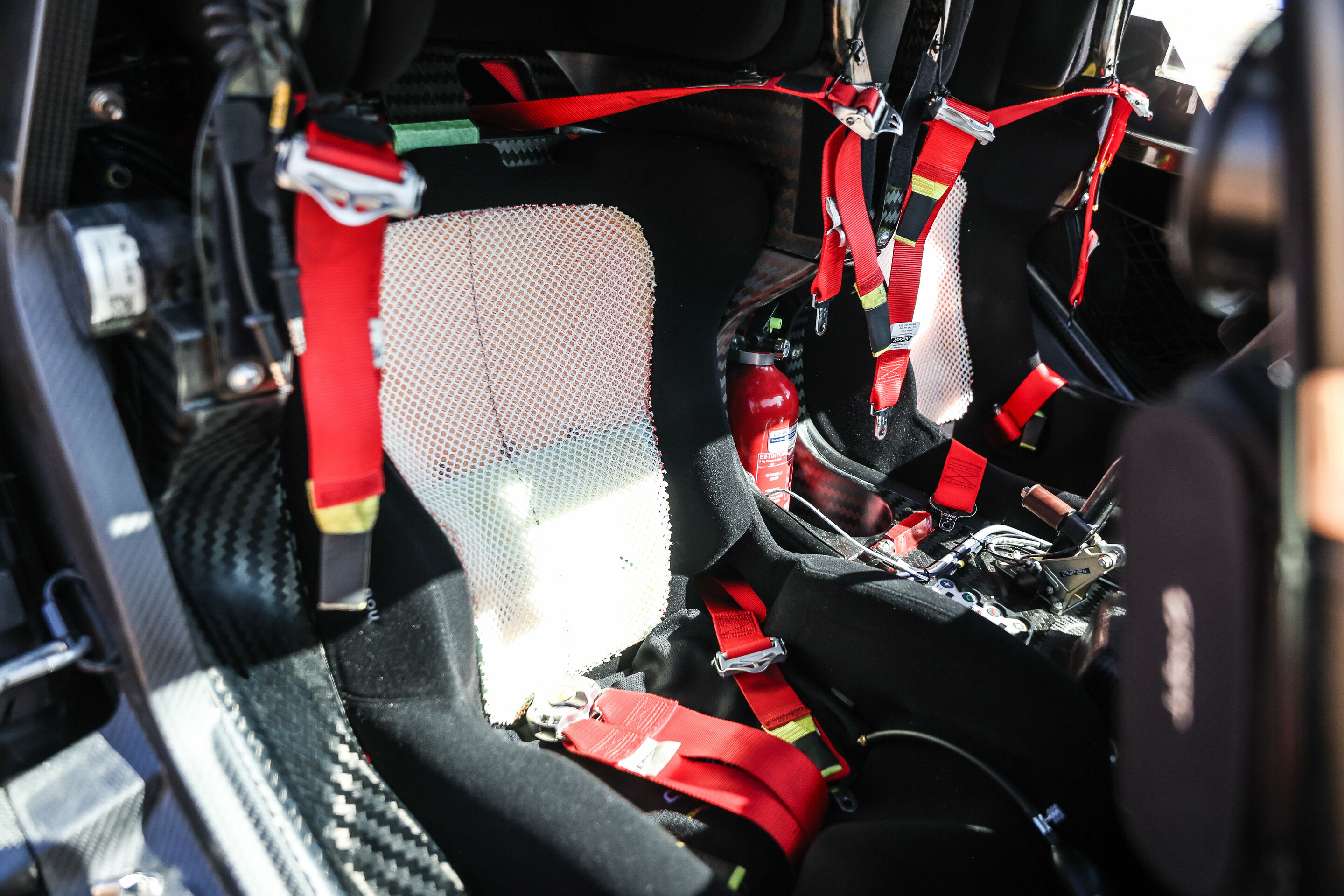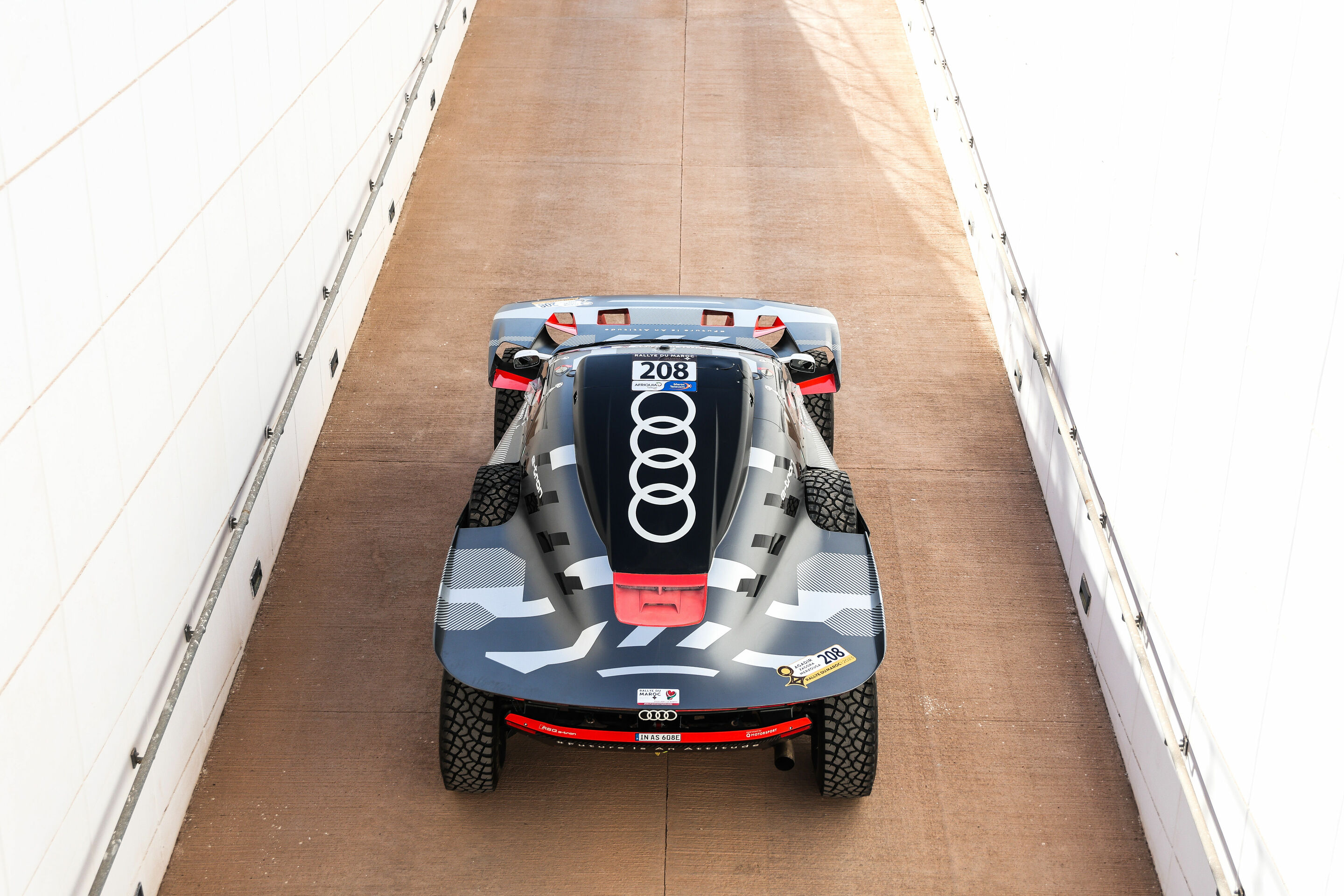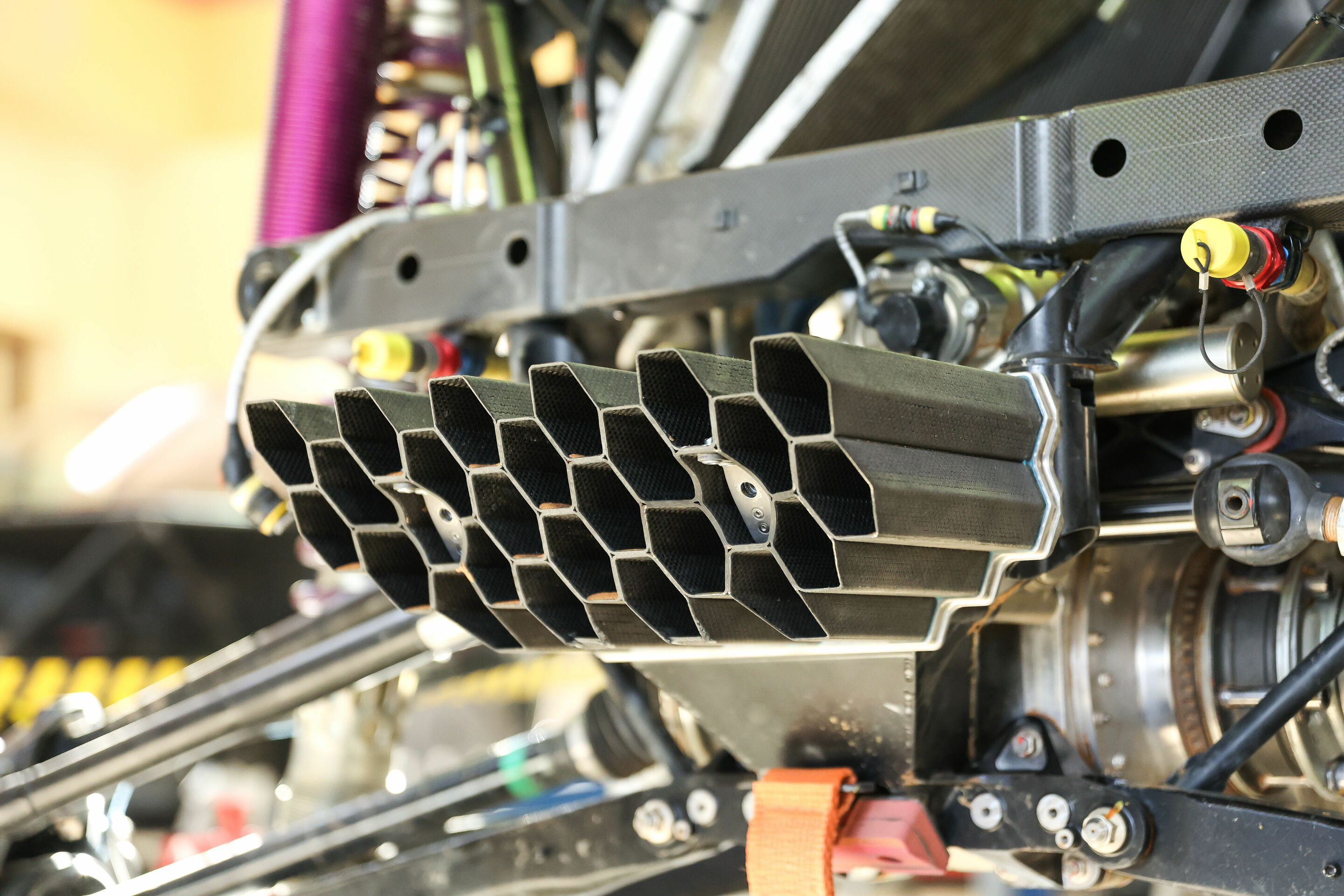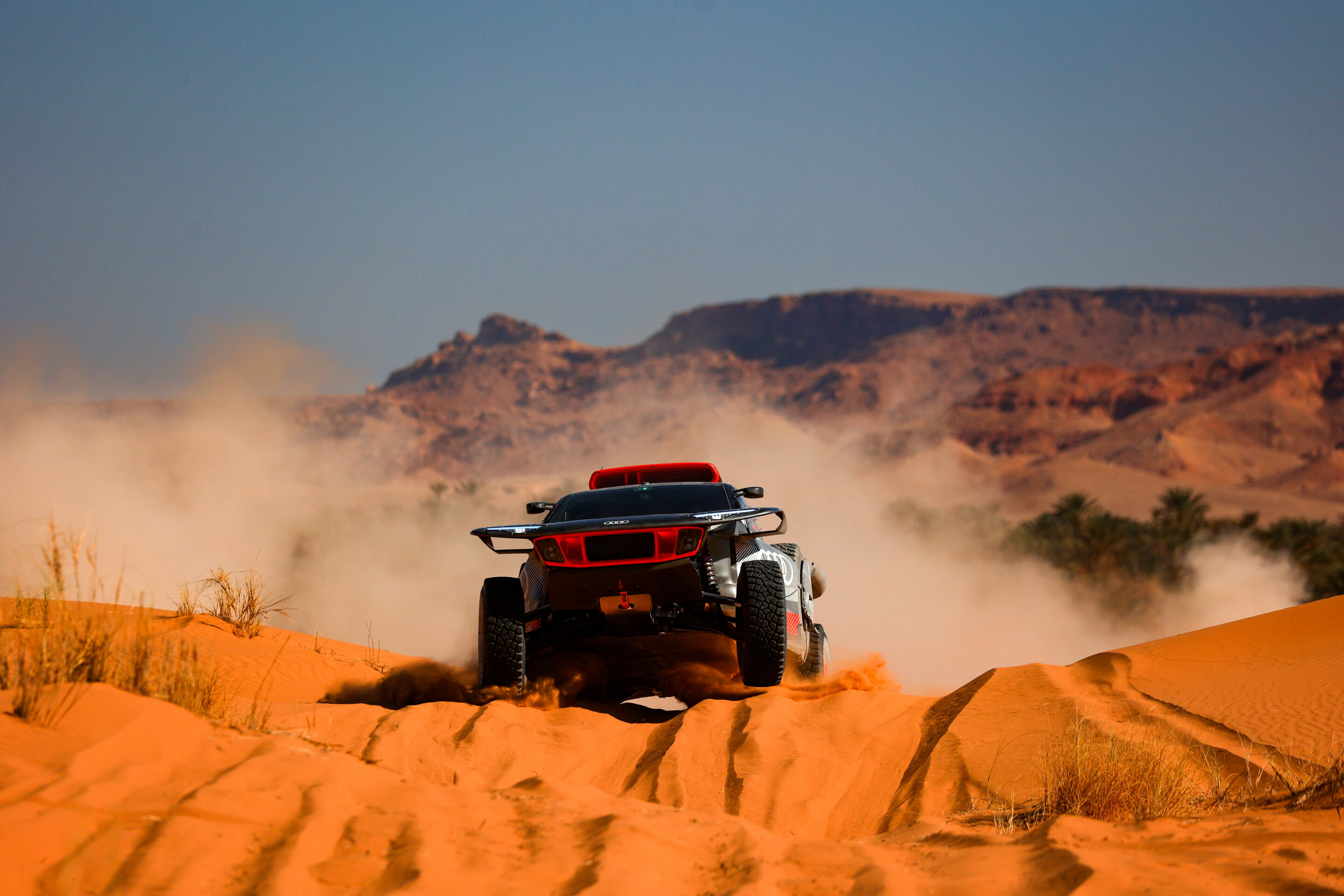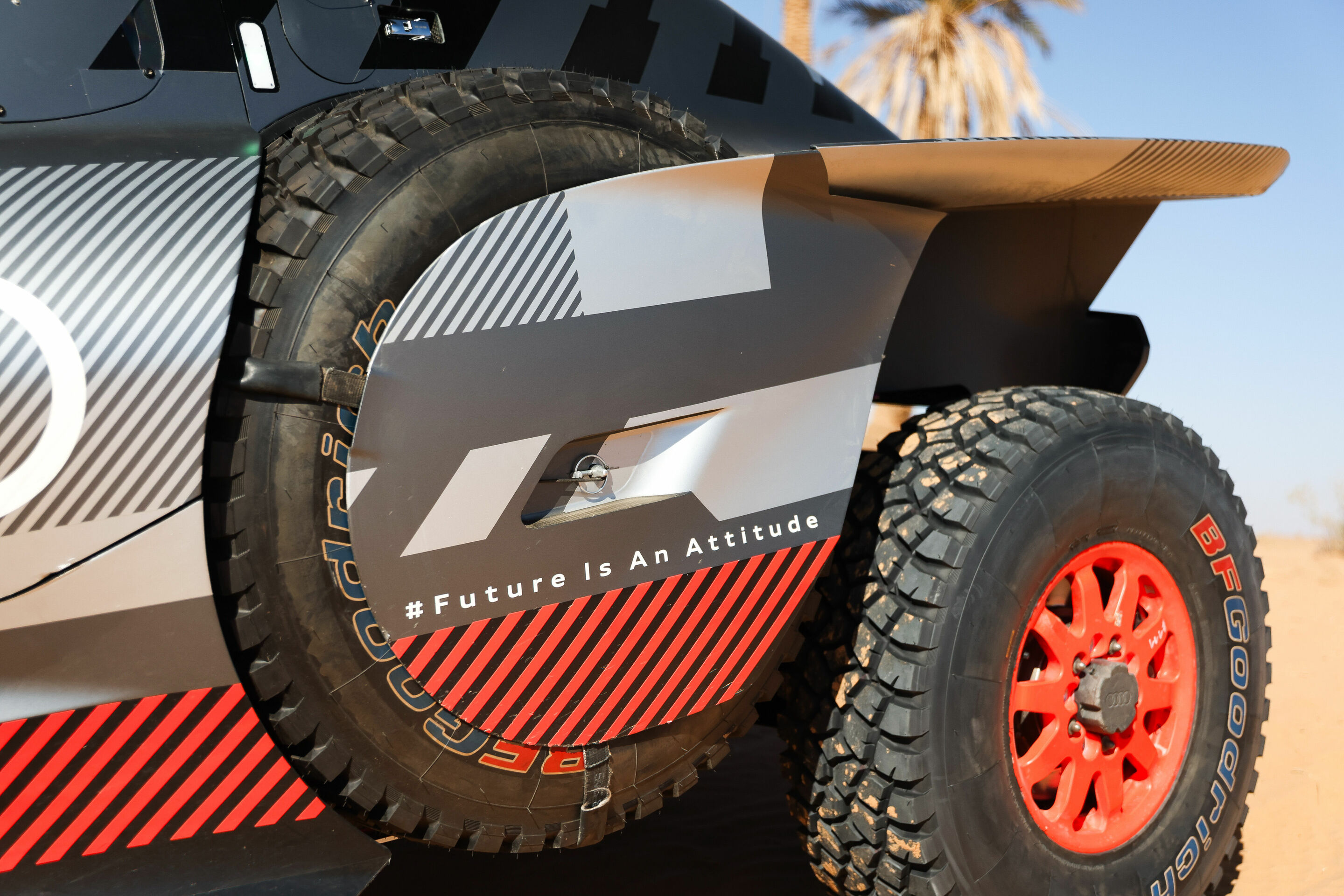Audi RS Q e-tron for 2024: Innovative prototype with many new details
- Numerous improvements in five major areas
- Prototype better to handle, even more reliable and safer
- Perfect preparation for 2024 Dakar Rally
Audi improves the RS Q e-tron once again: Ahead of its third outing in the Dakar Rally, the rally prototype with its pioneering electric drivetrain with a high-voltage battery and an energy converter receives innovations in many areas. The Audi driver crews of Mattias Ekström/Emil Bergkvist, Stéphane Peterhansel/Edouard Boulanger and Carlos Sainz/Lucas Cruz benefits from numerous detail improvements in January 2024. The new ideas make the RS Q e-tron safer, more reliable, more comfortable and a little lighter, as well as having shorter maintenance times for the team.
In January 2024, Audi will take on the world’s toughest desert rally for the third time with its low-emission vehicle. “What the RS Q e-tron is fundamentally capable of has been demonstrated by our drivers and co-drivers with six stage victories and 22 other single-day podium results at the Dakar Rally since 2022,” says Rolf Michl, Head of Audi Motorsport. “Now it’s a matter of showing our performance as steadily as possible so that we can fight for top positions.” Audi Sport has analyzed the previous outings, identified weak points and set clear priorities for further development. Dr. Leonardo Pascali, the project’s new Technical Director, has focused on five key topics with his development team since the early summer.
Safety: continue to improve on a high level
The accidents of Stéphane Peterhansel and Carlos Sainz at the 2023 Dakar Rally have prompted Audi to improve safety yet again. “Our goal was to reduce the peak vertical acceleration during landings after big jumps,” says Dr. Leonardo Pascali. By working with the springs, dampers and the bump stop in the chassis, the engineers have better distributed some of the load over time. They thus enable optimum control of the platform, which is so important for the overall performance of the car. A second contributing factor comes from the foam in the seats. They help to distribute loads on the driver and co-driver over a longer period of time and thus reduce peak loads. The developers have specifically focused on the material stiffness and geometries of the foam in the seats, also taking into consideration how the cockpit temperature influences the stiffness of the foam. The protection of the occupants after a hard frontal landing of the vehicle, like Carlos Sainz’s second accident at the 2023 Dakar Rally, which ended up with the car rolling over, was also on the minds of those responsible. The CFRP crash box at the front end of the chassis structure is now longer, without compromising the angle of attack, which is so important in cross-country rallying. It now absorbs the energy generated during such accidents better than before.
Reliability: clever details for the big picture
The Audi RS Q e-tron is a very reliable race car, even in the toughest conditions: All three cars saw the finish line at their first Dakar Rally event in 2022. The fact that two of the three cars did not finish in 2023 was not due to technical issues, but due to accidents. As the complex drivetrain technology is basically mature, Audi Sport can concentrate on details in terms of reliability. Previously, penetrating stones got caught between the rim bed, brake disc and upright. In some cases, they caused considerable damage and necessitated time-consuming wheel changes on more than one occasion. New fastening elements for the uprights allow greater clearance so that the stones are thrown out more easily. At the same time, Audi Sport is using more robust rims from now on. Stronger sidewalls also make the new generation of tires, from the control tire supplier BF Goodrich, less vulnerable.
Comfort: better sealing for higher concentration
Audi relies on particularly experienced, well-coordinated and high-performing drivers and co-drivers. To make their strenuous work easier, the engineers optimized the acoustic shielding, as well as sealing the cockpit. A modified front bonnet now better repels swirled mud and water, which allows the windshield to remain cleaner.
Performance: ideas in many areas
From the chassis to the software, from the body to the electric drivetrain: The engineers looked at various aspects to make the Audi RS Q e-tron even more competitive within the framework of the regulations. Working with the shock absorbers and springs helped the team to find an even better set-up. To get even closer to the minimum weight of 2,100 kilograms, while the weight of the new, more robust tires increases, various components have been optimized in terms of weight. This applies to the rear bonnet, as well as the smaller brake calipers, but also to the footrest for the co-driver. The regulations also slightly shift the balance between Audi’s T1U model and the opponents in the T1 class in terms of power-to-weight ratio: The 263 kW of maximum output from the electric motors at the start of the 2023 season (including the efficiency coefficient) turned into a value of 271 kW during the Dakar Rally, following a change in the regulations. As of January 2024, the figure will rise to 286 kW. At the same time, the regulations raise the weight of the opponents’ T1 models by 10 to 2,010 kilograms.
Maintenance times: shorter work, better result
In its search for improvements, the Audi Sport development team also examined the daily maintenance work during rally events. Thanks to many practical ideas in this detail area, quite a few steps have now been simplified. For example, modified bolted connections, improved tool holders, optimized filling cap devices for operating fluids, new locking solutions for body parts and bolted instead of glued connections all contribute to simpler and faster servicing.
“Our engineering team has improved the RS Q e-tron even further with many creative solutions,” says Rolf Michl, Head of Motorsport. “Drivers and co-drivers, as well as all of the mechanics and engineers, benefit from the imaginative ideas. We feel that we are prepared for the Dakar Rally in the best possible way.” Since the middle of the year, Audi has successively incorporated the changes and started testing them, thus ensuring the incorporation of all the innovations in time for the 2024 Dakar Rally.
Additional contents:
>> Technical data
